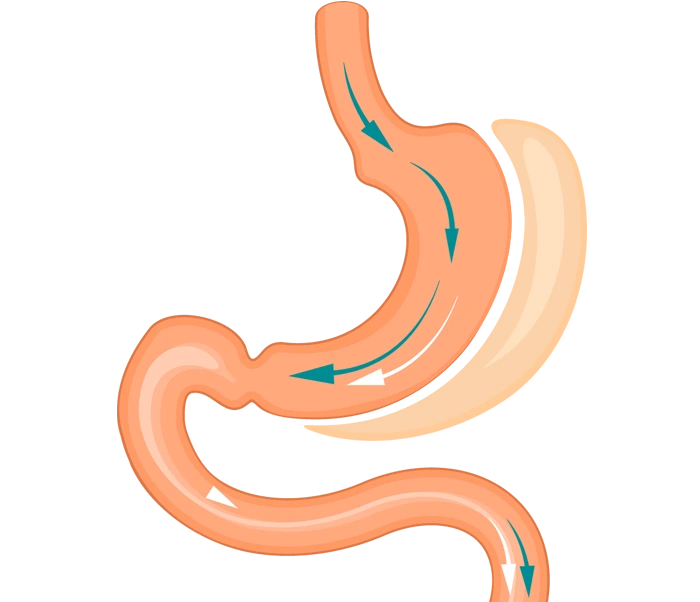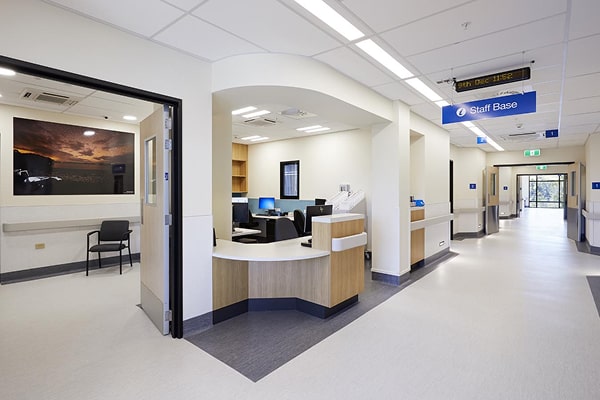Bariatric Surgery: A Modern Approach to Treating Severe Obesity and Achieving a Healthier Life
Bariatric surgery is one of the most advanced and effective medical interventions for treating severe obesity and its associated complications. Individuals struggling with excessive weight or obesity-related conditions such as type 2 diabetes, high blood pressure, and sleep apnea can experience a significant improvement in their quality of life through this surgery. In this article, we provide a comprehensive overview of the types of bariatric procedures, their benefits, possible complications, candidacy criteria, and the advantages of undergoing surgery in Iran.
What Is Bariatric Surgery?
Bariatric surgery encompasses a set of surgical techniques aimed at achieving sustainable weight loss by reducing stomach volume, altering the digestive tract, or both. This type of surgery is typically recommended when non-surgical methods like dieting, exercise, or medications have proven ineffective.
Types of Bariatric Surgery
- Sleeve Gastrectomy
In this method, approximately 75% to 80% of the stomach is removed, leaving a narrow tube-shaped pouch. This smaller stomach capacity leads to quicker satiety and reduced food intake. - Gastric Bypass
This procedure involves creating a small stomach pouch and connecting it directly to a lower section of the small intestine. It reduces both calorie absorption and appetite. - Adjustable Gastric Banding
A silicone band is placed around the upper part of the stomach to limit food intake. Though adjustable, this method has become less popular compared to other options. - Duodenal Switch
A combination of sleeve gastrectomy and intestinal rerouting, this technique is suitable for patients with very high BMI, offering both restriction and malabsorption.
Ideal Candidates for Bariatric Surgery
- Individuals with a BMI over 40
- Or those with a BMI over 35 who also suffer from obesity-related conditions (e.g., diabetes, sleep apnea, hypertension)
- Patients who have not succeeded with non-surgical weight-loss methods
- Those with stable mental health and commitment to necessary lifestyle changes post-surgery
Benefits of Bariatric Surgery
- Sustainable and effective weight loss
- Improvement or complete resolution of obesity-related diseases
- Increased life expectancy and quality of life
- Reduced dependence on chronic medications
- Enhanced physical mobility, energy levels, and self-confidence
Possible Complications of Bariatric Surgery
Like all surgeries, bariatric procedures may involve short-term or long-term complications, including:
- Initial nausea and vomiting
- Reduced absorption of vitamins and minerals
- Gallstones
- Acid reflux
- Digestive issues in some individuals
With appropriate dietary management, supplementation, and regular medical follow-ups, these risks are manageable.
Pre-Surgery Preparation
- Comprehensive medical evaluations and lab tests
- Consultations with a nutritionist, psychologist, and lifestyle assessment
- Adherence to a specific preoperative diet
- Quitting smoking and stabilizing underlying conditions like diabetes or hypertension
Post-Surgery Care
- Gradual reintroduction of food (liquids → pureed → soft → light solids)
- Regular intake of vitamin and mineral supplements
- Consistent physical activity
- Ongoing psychological and nutritional counseling
- Scheduled medical follow-ups
Bariatric Surgery in Iran: Why Iran Is an Ideal Destination for Medical Tourism
Internationally Trained and Experienced Surgeons
Iranian bariatric surgeons possess extensive experience, internationally recognized fellowship certifications, and access to the latest medical technologies.
Highly Affordable Costs
The cost of bariatric surgery in Iran is up to 70% lower than in Europe, the U.S., or Gulf countries, making it a highly economical option.
Modern Medical Facilities and International Hospitals
Iran hosts top-tier hospitals such as Gandhi, Nikan, Razavi, Erfan, and more, all offering full facilities tailored for international patients.
Comprehensive Medical Travel Services
Specialized medical tourism companies such as CCKAAM manage the entire process for international patients—from visa issuance and airport transfers to accommodation, surgery, and post-operative follow-up.
The Role of Nutrition in Bariatric Surgery: The Key to Success Before and After the Procedure
Bariatric surgery is a major step in the treatment of morbid obesity, but its long-term success hinges on one essential factor: proper nutrition. A well-structured nutritional plan before and after surgery plays a vital role in sustainable results, weight maintenance, complication prevention, and overall quality of life improvement.
This article provides a detailed exploration of the importance of nutrition in the pre- and post-operative phases of bariatric surgery, including dietary stages, essential nutritional guidelines, required supplements, and common mistakes to avoid.
The Importance of Nutrition in Bariatric Surgery
Proper nutrition not only prepares the body for surgery but is also crucial during recovery. It supports overall health, prevents gastrointestinal complications, and ensures lasting weight loss. Without strict adherence to a proper dietary regimen, even the most technically successful surgery may fail to yield the desired results.
Preoperative Diet
Main Goals:
- Reduce liver fat and stomach volume to make surgery safer and easier
- Minimize the risk of intraoperative and postoperative complications
- Mentally and physically prepare for lifestyle changes
Pre-Surgery Dietary Plan:
- Low-calorie, high-protein diet
- Eliminate simple sugars, sodas, and fatty foods
- Increase intake of vegetables, lean proteins, water, and clear fluids
- Strict portion control of all meals
Important Note: Strict adherence to the preoperative diet can reduce surgical time and enhance recovery.
Post-Bariatric Surgery Nutritional Stages
After surgery, the stomach is significantly smaller and the digestive system is altered. Therefore, nutrition must progress step-by-step:
Stage 1 – Clear Liquids (First few days post-surgery):
- Only clear fluids such as water, unsweetened tea, broth, or sugar-free gelatin
- Goal: Prevent dehydration and avoid stressing the stomach
Stage 2 – Full Liquids:
- Skim milk, strained soups, protein shakes, pureed fruits
- Minimum daily protein intake: 60 grams
Stage 3 – Pureed Foods (Weeks 2–4):
- Cooked and mashed meats or poultry, soft-boiled eggs, pureed steamed vegetables
- Thorough chewing is essential, even for pureed foods
Stage 4 – Soft Foods (Weeks 4–6):
- Gradual introduction of soft foods like well-cooked rice, pasta, soft fruits
- Small, frequent meals (5 to 6 per day)
Stage 5 – Healthy Solid Foods (After Week 6):
- Start a balanced, low-fat, low-sugar, protein-rich diet
- Avoid high-fat foods, sweets, carbonated drinks, and fast food
Essential Supplements After Bariatric Surgery
Due to reduced nutrient absorption after surgery, lifelong use of specific supplements is strongly recommended:
- Daily multivitamin with adequate iron, folic acid, and zinc
- Calcium with vitamin D
- Vitamin B12, either injectable or sublingual
- Iron, if required
- Vitamins A, E, and K in cases of gastric bypass or duodenal switch procedures
Key Nutritional Guidelines After Surgery
✔ Eat slowly and chew food thoroughly
✔ Do not drink fluids during meals—only 30 minutes before or after eating
✔ Consume small, frequent meals (due to limited stomach volume)
✔ Avoid carbonated drinks, alcohol, and sweets
✔ Avoid hard, fibrous foods like fruit peels or whole grain bread in early stages
✔ Ongoing follow-up with a nutrition specialist is essential
Common Nutritional Mistakes to Avoid
- Overeating or eating too quickly
- Drinking fluids during meals
- Skipping essential supplements
- Eating unhealthy or high-fiber foods too early
- Lack of structured meal planning and ignoring caloric intake
Conclusion
Proper nutrition before and after bariatric surgery is the cornerstone of success in this therapeutic journey. Patients must commit to lifestyle changes, follow specialized dietary plans, and adhere to supplement regimens to not only achieve weight loss but also prevent weight regain, nutritional deficiencies, and long-term complications.
In the path to overcoming obesity, surgery is just the beginning. Sustainable success depends on proper nutrition, commitment to health, and the continued support of a specialized care team.













